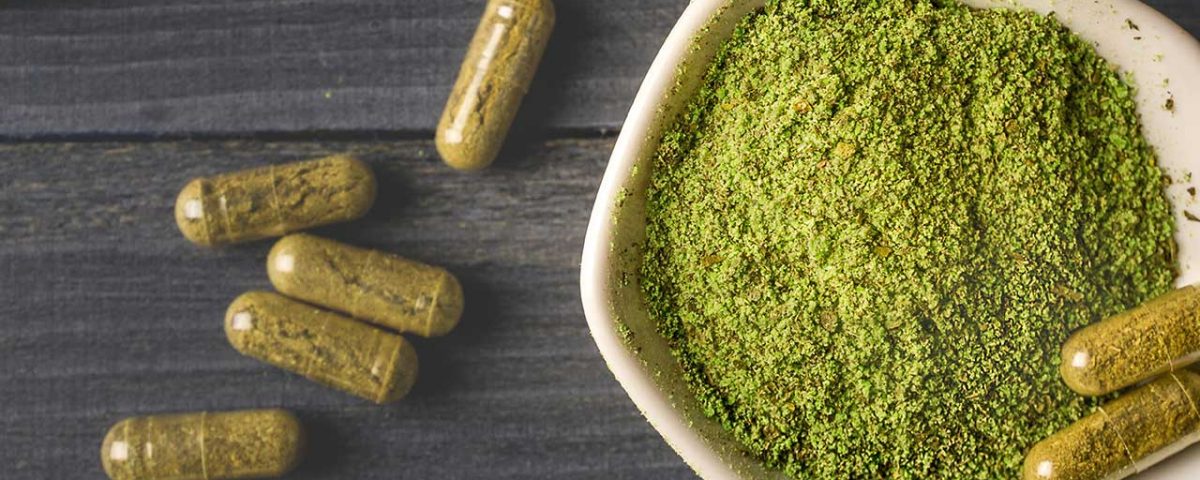Kratom is a plant that is often used in Eastern medicine to treat various ailments, including depression. Although some research suggests that kratom could potentially alleviate some symptoms of depression, researchers aren’t entirely sure. Like any substance, kratom also carries some risks that a person should be aware of before taking it. Today, we’re going to talk about whether kratom for depression works and the risks associated with it.
What Is Kratom?
Kratom is an herbal extract that comes from an evergreen tree called Mitragyna speciosa. It is native to parts of Southeast Asia, including places like Malaysia and Thailand, where it grows in the jungles.
The leaves of the Mitragyna speciosa contain the active ingredient in kratom called mitragynine. Mitragynine is the chemical in kratom responsible for the high that it can produce in people who misuse it or take it in higher doses than recommended.
Mitragynine is an alkaloid that works similar to opioids by attaching to opioid receptors in the central nervous system. Although it’s not technically categorized under the opioid drug class, it does produce opioid-like side effects due to its chemical structure.
In the US, kratom was available online as a supplement up until 2014, when restrictions on sales were implemented. However, the Food and Drug Administration (FDA) doesn’t consider kratom a controlled substance, so the regulations are few.
Today, kratom is usually sold online as a powder, capsule, gum, or extract. However, keep in mind that purchasing any substance online is risky, and kratom itself also comes with its own risks.
There are plenty of scammers on the internet looking to make quick cash by selling people a supplement that’s anything other than kratom. Additionally, purchasing any substance online also presents the risk of it being laced with something more dangerous and possibly life-threatening.
Does Kratom Help Depression?
There isn’t much research on the use of kratom for depression and anxiety. Although one 2017 study on kratom use showed that people who used kratom to self-medicate mental health disorders like depression and anxiety reported a perceived reduction in symptoms, it’s hard to measure such a claim.1
A 2018 review on kratom use and mental health confirmed these findings, showing that some people who took this substance reported enhanced mood and reduced anxiety symptoms.2 However, while kratom may help depression, it should be taken under the care of and monitored by a physician.
In addition to these findings, scientists are also aware of the various side effects that kratom can produce, including sedation, pleasure, and reduced reception of pain. Mitragynine, the main active ingredient in kratom, also works in other regions of the brain to produce sedation.
At low doses, kratom may act as a stimulant, increasing the person’s energy, whereas moderate doses may produce feelings of euphoria. Taking kratom in extremely high doses, more so than what’s recommended, can lead to a sedative effect or a high.
Kratom Side Effects and Risks
So is kratom a depression cure? Not really. Although it can help reduce certain symptoms of depression and anxiety, it’s important to always be cautious when taking any supplement or medication, especially when it acts similarly to drugs as addictive as opioids.
Despite the positive effects that kratom may have on mental health, many scientists still believe that the risk of regular kratom use outweighs its benefits.
Negative effects of kratom include:
- Sedation
- Dizziness
- Nausea and/or vomiting
- Dry mouth
- Tongue numbness
- Stomach pain and discomfort
- Constipation
- An uncontrollable urge to urinate
- Aggression and irritability
- Hallucinations
- Delusions
- Risk of dependency and addiction
- Difficulty breathing
- Seizures
- Brain swelling
- Liver damage
- Overdose and death
Despite the minimal restrictions on kratom use, the FDA actually warns consumers not to use kratom because of its potential for abuse and addiction. Because kratom acts similarly to opioids, the substance is believed to be addictive, as well. There are also no FDA-approved uses for kratom, and the FDA warns consumers against using any products or supplements that contain this ingredient.3
If a person becomes addicted to kratom, they may experience withdrawal symptoms like muscle and bone pain, uncontrollable shaking, nausea, vomiting, fatigue, mood swings, and more when they cut down or stop using it altogether. In some people, kratom withdrawal can also exacerbate depression and anxiety symptoms, worsening symptoms that they wanted to alleviate in the first place.
Additionally, because this substance is often sold online, it’s hard to know its ingredients and purity. Overall, it’s best to avoid using a supplement and instead speak to a doctor about ways to manage your mental health.
Need Help?
Although it’s tempting to take the quickest route to relief when coping with depression, every supplement or substance comes with risks. When it comes to using kratom for depression, it’s important to keep its potential for addiction in mind.
If you or someone you know is struggling with depression or any other mental health disorders, Banyan Treatment Centers Boca offers inpatient mental health treatment that utilizes various evidence-based therapies and practices to help patients learn how to manage their symptoms. For those who may be battling a co-occurring addiction, we offer medically monitored detox to help create a smooth withdrawal process and recovery.
For more information about our mental health rehab in Florida, call Banyan Boca today at 888-280-4763.
Related Reading:
How Long Does Kratom Stay in Your System?
How Long Does Kratom Withdrawal Last?
Sources:









